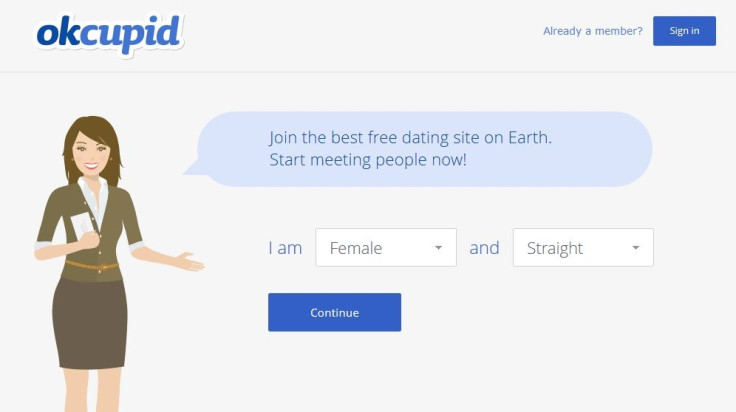OkCupid Dating Experiment Could Land Christian Rudder's Company In Trouble For 'Deceptive' Practices

Dating website OkCupid may be facing its own quiver of arrows. Its president's disclosure that the popular dating site intentionally misled couples about their compatibility could open OkCupid up to a U.S. Federal Trade Commission inquiry, lawyers and experts in consumer-protection law told Reuters.
In an OkCupid blog post -- titled “We Experiment On Human Beings!” -- President Christian Rudder said Monday that OkCupid had conducted experiments on users, manipulating their information, so site administrators could see if its matchability rating had any effect on how well couples got along.
“To test this, we took pairs of bad matches … and told them they were exceptionally good for each other,” Rudder wrote. “When we tell people they are a good match, they act as if they are. Even when they should be wrong for each other.”
The whole OkCupid thing brings to mind the hot water Facebook Inc. (NASDAQ:FB) landed in with its own psychology study, in which the social media company edited the algorithm that determined which of a user’s friends’ posts appeared on their news feed. That breach of trust was widely deemed unethical and became the subject of investigation in the United Kingdom. U.S. lawmakers have asked the FTC to look into whether Facebook broke the law or violated its consent agreement.
Legal experts said OkCupid's actions appear to be in violation of a provision in the FTC act that prohibits "unfair and deceptive" practices by a company that result in misleading or harming consumers. “When you’re matching people up with individuals who are not good matches, that would certainly be deceptive,” Jesse Brody, of Los Angeles law firm Manatt Phelps & Phillips, told Reuters.
Other legal experts said it would be difficult to prove deception. "From a consumer-protection perspective it can be argued that the 'experiment' was an effort to ensure and confirm the efficacy of the service," Robert deBrauwere, of New York law firm Pryor Cashman, said.
The FTC declined to discuss with Reuters whether the agency was investigating OkCupid, a free website with some paid premium services that is owned by IAC/InterActive Corp. (NASDAQ:IACI). An FTC spokeswoman said that the agency was most likely to probe practices that caused economic or health injuries.
"If it's completely free, it's not clear what the consumer injury would be," Mary Engle, an FTC spokeswoman, told Reuters.
Rudder told Reuters that the site has received fewer than 10 complaints about its experiment. About 1 million people had logged on to OkCupid's website since he disclosed the experiment in the blog post.
OkCupid's privacy policy says, among other things, "We may use information that we collect about you to perform research and analysis about your use of, or interest in, our products, services, or content..." Rudder declined to say if anybody plans to use over the experiment.
© Copyright IBTimes 2024. All rights reserved.











